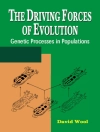The big question of how and why mindedness evolved necessitates collaborative, multidisciplinary investigation. Biosemiotics provides a new conceptual space that attracts a multitude of thinkers in the biological and cognitive sciences and the humanities who recognize continuity in the biosphere from the simplest to the most complex organisms, and who are united in the project of trying to account for even language and human consciousness in this comprehensive picture of life. The young interdiscipline of biosemiotics has so far by and large focused on codes, signs and sign processes in the microworld—a fact that reflects the field’s strong representation in microbiology and embryology. What philosophers of mind and cognitive scientists can contribute to the growing interdiscipline are insights into how the biosemiotic weltanschauung applies to complex organisms like humans where such signs and sign processes constitute human society and culture.
Tabella dei contenuti
Introduction: exploring the origins of mindedness in nature.- BIOSEMIOTICS.- 1. Organic Codes and the Natural History of Mind.- 2. The Descent of Humanity.- 3. From Non-Minds to Minds: biosemantics and the Tertium Quid.- 4. Cybersemiotics: a new foundation for a transdisciplinary theory of consciousness, cognition, meaning and communication.- MENTAL REPRESENTATION.- 5. The Emergence of Empathy in the Context of Cross-Species Mind-reading.- 6. The Evolution of Scenario Visualization and the Early Hominin Mind.- 7. Representation in Biological Systems: teleofunction, etiology, and structural preservation.- 8. Beyond embodiment: from internal representation of action to symbolic processes; Isabel Barahona da Fonseca.- CONSCIOUSNESS.- 9. Imitation, Learning, and Conceptual Thought: an embodied, developmental approach.- 10. Evolving Consciousness: the very idea!.- 11. Mind or Mechanism: which came first?.- 12. Origins of the Qualitative Aspects of Consciousness: evolutionary answers to Chalmers’ hard problem.- PHILOSOPHY OF MIND.- 13. Neuropragmatism on the Origins of Conscious Minding.- 14. Not So Exceptional: away from Chomskian salationism and towards a naturally gradual account of mindfulness.- 15. Mental Organs and the Origins of Mind.- 16. Mnemo-psychography: the origin of mind and the problem of biological memory storage.- SYNTHETIC INTELLIGENCE.- 17. Minimal Mind.- 18. Concept Combination and the Origins of Complex Cognition.- 19. The Mind of the Noble Ape in Three Simulations.- 20. From the Natural Brain to the Artificial Mind.












